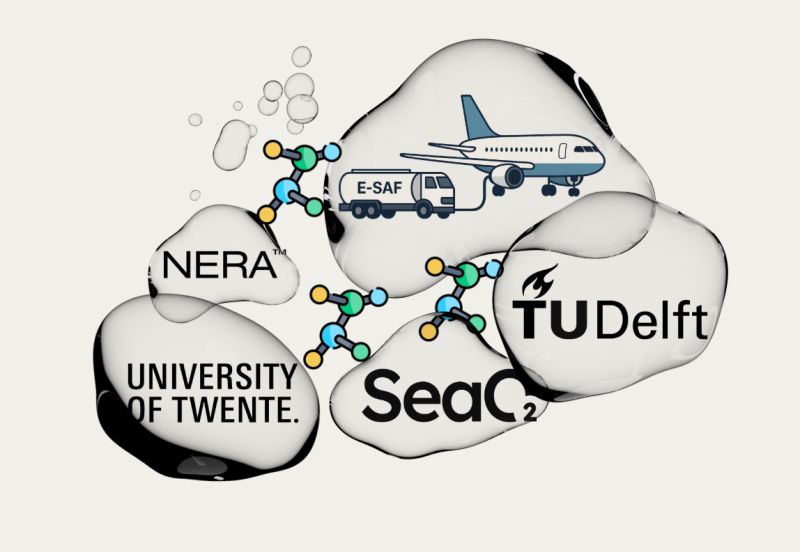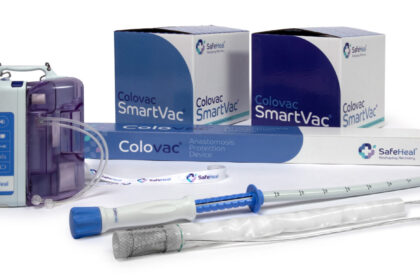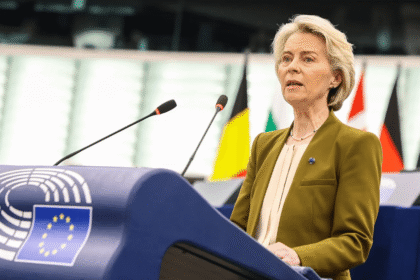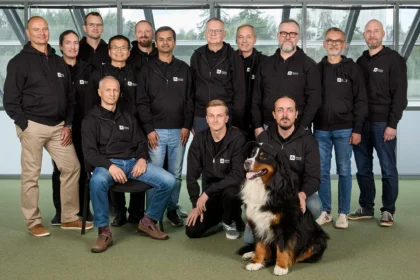SeaO₂, together with TU Delft, University of Twente, and NERA, has secured €1.64 million in funding from the TKI Energy and Industry program. The project aims to develop a decentralized and fully integrated process for producing sustainable aviation fuel (e-SAF) using seawater, renewable electricity, and captured CO₂. By bringing together expertise in CO₂ capture, electrochemical conversion, and advanced catalysis, they’re working toward a new generation of e-fuels that can be produced locally, flexibly, and without reliance on biomass or fossil inputs.
The project is structured around four key areas:
- Design & Feasibility: Defining the system requirements, use case, and technical criteria for a viable water-to-e-SAF pathway.
- CO₂ & Water Capture: Advancing SeaO₂’s electrochemical technology to efficiently extract CO₂ from seawater and ultrapure water for hydrogen production.
- CO₂ Conversion: Turning captured CO₂ into alcohols and olefins—the key building blocks of sustainable aviation fuel, using innovative reactor designs and catalysts.
- Techno-Economic Analysis: Evaluating the integrated process and benchmarking it against conventional kerosene to assess cost-effectiveness and scalability.
About SeaO₂
Founded in 2021 and born from technology developed in Delft University of Technology and Wetsus’s laboratories, SeaO₂ provides cost-efficient atmospheric carbon removal by leveraging our biggest ally in battling climate change – the ocean. The company is built on the premise that it is easier to extract CO₂ from water than from the air and its mission is to “to protect our planet from getting warmer and warmer, by reducing the CO₂ concentration in the ocean and indirectly in the air. To keep us all cool. To deacidify our oceans so pH is restored. To benefit biodiversity”.





